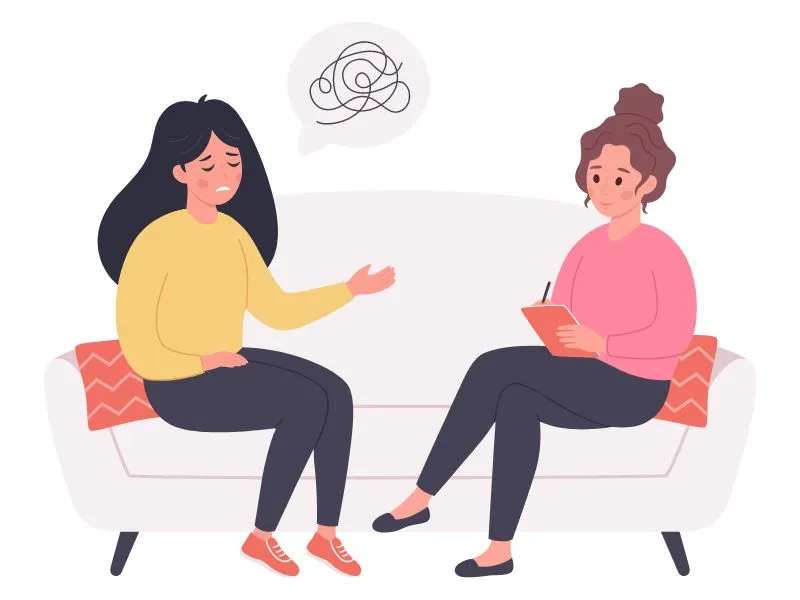Getting therapy is becoming a more crucial part of preserving mental and emotional well-being in the fast-paced, demanding world of today. However, there are still several barriers that prevent individuals from accessing the help they need. Many of these barriers arise from common misconceptions about therapy.
In this blog post, we'll look at some of the most common misconceptions about therapy and talk about how to dispel them to encourage a more inclusive and supportive environment for seeking therapy.
Misconception 1: Therapy is only for people with severe mental illness.
One of the most widespread myths about therapy is that it is only appropriate for people with severe mental problems. However, therapy is not only for people with severe diseases. Therapy can benefit anyone struggling with stress, relationship issues, grief, self-esteem, or simply seeking personal growth. It is a valuable tool for self-reflection and developing coping mechanisms, regardless of the severity of the situation.
Overcoming the Barrier: Educate yourself and others about the wide range of therapeutic interventions available. Highlight the fact that therapy can be utilized as a proactive approach to enhance well-being rather than solely as a reactive measure. Share success stories or testimonials from individuals who have found therapy helpful in managing everyday challenges.
Misconception 2: Seeking therapy is a sign of weakness.
Another common misconception is that seeking therapy is a sign of weakness or an inability to handle problems independently. This perception often leads to stigma surrounding mental health, preventing people from seeking the support they need. However, acknowledging and seeking help for one's struggles is an act of strength and self-care.
Overcoming the Barrier: Promote a culture of self-care and mental well-being by challenging the notion that seeking help is a weakness. Emphasize that therapy is a courageous step towards self-improvement and growth. Encourage open conversations and awareness about mental health in person and through various mediums to reduce the stigma and normalize the idea of seeking therapy.
Misconception 3: Therapy is too expensive.
Another big obstacle that keeps people from seeking treatment is the perception that therapy is unreasonably expensive. While therapy can be a financial investment, various options are available for affordable and accessible therapy.
Overcoming the Barrier: Educate yourself about accessible forms of therapy that are inexpensive, such as sliding-scale fees, community mental health centers, or therapists who charge less. Some therapists also provide online counseling, which can be more cost-effective than in-person sessions. Promote the use of mental health apps and resources that offer accessible or affordable self-guided therapy.
Misconception 4: Therapy is only for certain demographics.
Some people mistakenly believe that therapy is only for certain demographics, such as women or specific ethnic groups. This misconception stems from societal biases and stereotypes, which can deter individuals from seeking therapy due to feelings of exclusion.
Overcoming the Barrier: Highlight the diversity and inclusivity of therapy by showcasing a wide range of therapists from different backgrounds, genders, and cultural perspectives. Encourage individuals to seek therapists who align with their specific needs and identities. Promote cultural competency training for therapists to ensure a welcoming and understanding environment for all clients. It's essential to emphasize that therapy is for everyone, regardless of gender, race, or cultural background.
Conclusion:
Overcoming the barriers to seeking therapy starts with challenging common misconceptions surrounding it. By dispelling these misconceptions and promoting the benefits of therapy, we can create a more supportive environment that encourages individuals to prioritize their mental health. Let us work together to break down the barriers and foster a society where seeking therapy is seen as a proactive and empowering choice for personal growth and well-being.
Solh Wellness is dedicated to providing a range of self-help tools to support your well-being. We offer various resources and assistance to help you navigate through challenges. Additionally, our team of skilled counselors specializes in effectively managing your concerns. If you need help, we invite you to book a session with us to access the desired support and guidance.



